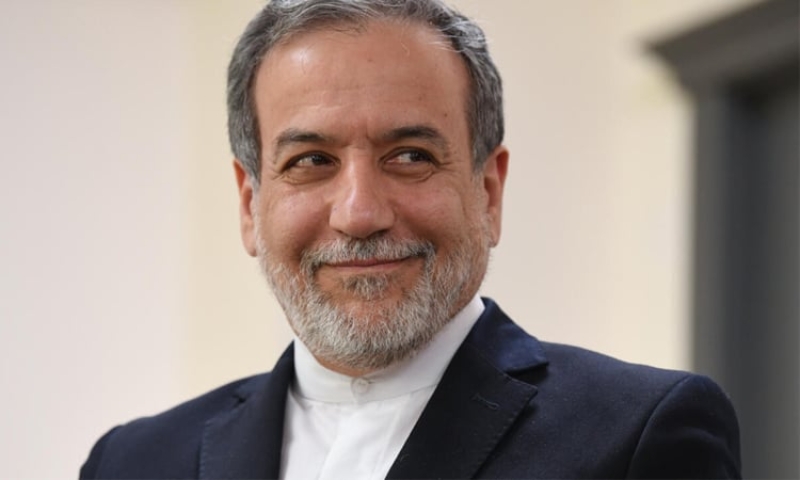- Puppet show enchants Children as Boi Mela comes alive on day 2 |
- DSCC Admin Salam’s drive to make South Dhaka a ‘clean city’ |
- 274 Taliban Dead, 55 Pakistan Troops Killed |
- Now 'open war' with Afghanistan after latest strikes |
- Dhaka's air quality fourth worst in world on Friday morning |
Iran Rejects Direct Talks with US Calling Those 'Meaningless'

Iranian Foreign Minister Abbas Araghchi firmly rejected direct negotiations with the United States on Sunday, deeming them "meaningless" after US President Donald Trump expressed a preference for such talks. Trump's recent statements, which included a call for direct discussions over Iran's nuclear program and a threat of military action should diplomacy fail, prompted a strong response from Tehran.
"I think it goes faster and you understand the other side a lot better than if you go through intermediaries," Trump said earlier in the week. However, Araghchi dismissed the offer, criticizing the contradictory positions from US officials and the repeated threats of force in violation of the UN Charter. "Direct negotiations would be meaningless with a party that constantly threatens to resort to force," Araghchi stated. "We remain committed to diplomacy and are ready for indirect negotiations."
In a statement, Araghchi emphasized Iran's preparedness to defend its sovereignty, asserting that the country would act decisively both in diplomatic efforts and in safeguarding its national interests.
Iranian President Masoud Pezeshkian echoed Araghchi’s sentiments, affirming that while Iran is open to dialogue with the US, it expects negotiations to be on equal terms. He further questioned Washington's sincerity, pointing out the inconsistency in threatening military action while proposing talks.
The backdrop to this diplomatic tension remains the nuclear issue. For years, Western powers, led by the US, have accused Iran of attempting to develop nuclear weapons, a claim Tehran has consistently denied, insisting its nuclear program is for peaceful purposes.
Tensions heightened after the 2015 nuclear agreement, the Joint Comprehensive Plan of Action (JCPOA), which saw Iran agree to limit its nuclear activities in exchange for sanctions relief. However, in 2018, President Trump withdrew the US from the deal, reinstating severe sanctions on Iran. As a result, Tehran began scaling back its commitments under the agreement and accelerating its nuclear activities.
In a chilling statement on Saturday, Hossein Salami, head of Iran's Islamic Revolutionary Guard Corps, declared the country was "ready" for war, stressing that Iran would not initiate conflict but would not hesitate to defend itself if attacked.
Ali Larijani, a close adviser to Iran's Supreme Leader Ayatollah Ali Khamenei, added further gravity to the situation on Monday, warning that while Iran does not seek nuclear weapons, it may be forced to pursue them if attacked.
As the standoff continues, the prospect of direct talks between the two nations seems increasingly unlikely, with both sides maintaining a cautious and adversarial stance.

